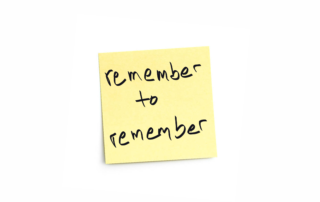Author: Alex Gheorghe When we are anxious/worried our body automatically triggers its stress response (or “fight or flight”). This our body’s natural reaction system and has evolutionarily been beneficial in something very key… helping us stay alive! Our stress response includes physical and thought responses to our perception of an event or situation. As humans, we welcome predictability and when we feel a significant lack of control, our body can initiate this “survival mode.” When we spend a lot of time in survival mode, the chronic stress can have a negative impact on our mind and body. You may experience tension in your muscles, difficulty sleeping/eating or engaging in day-to-day activities. As someone who has experienced this first-hand, I know how scary and debilitating this experience can be. Feeling like we are trapped by our thoughts and unable to break out of this cycle can leave us feeling helpless and frustrated. It’s important not to be hard on ourselves though. When it comes to managing stress and anxiety (especially in today’s uncertain situations), knowledge is power because knowledge brings with it some predictability. Understanding the reasons behind your behaviour and emotional response are important – most of us aren’t born […]
Join the Club! An Alternative ADHD Screening Tool
The more I work with clients with ADHD and explore the common threads that link us together, the less satisfied I am with the screening tools that are used. It’s not that the tools are inaccurate, it’s that they are incomplete, in my opinion. It is hard to boil the lived experience of ADHD down to 18 questions on a form, I’ll give you that, and you probably don’t want to make the form too long or complicated or the client will get distracted, forget that they are doing it, get bored and put it down and lose it, etc. Having said that, I find that one of the advantages of being a clinician who actually lives with an ADHD brain is that I can sometimes go beyond the surface-level questionnaires and dig a bit deeper into the more subtle aspects of being this way. For this reason, I have come up with my own questionnaire. It is not scored, there is no rating scale and there is no cutoff, categorical designation that tells you whether you “have it” or not. Instead, read through it, or have someone read it to you and think on each item: Can I relate […]
Book Excerpt: Impact of Fear on Recollection of Experience
The following is a very brief excerpt from my book, “This is Not That” due to be completed in 2048, based on the current pace. Let me know what you think. “In a rather complicated study, Professor D.B. Fenker and his colleagues (2005) had subjects view a series of emotionally neutral words on a computer screen. Randomly, some words were preceded by pictures of fearful faces or other disturbing images. The exposure to these images, however, was so quick that the individual was not aware that they had even seen the image, referred to popularly as subliminal images. Participants were later shown lists of words and asked to say whether they recalled seeing a word (had a conscious memory of learning it) or knew they had seen the word (they knew they had seen it before but couldn’t remember where or when). The researchers found that when words were preceded by a frightening or unpleasant image, they were more accurately recognized, though not consciously recalled. The implications of this study, and others like it, are momentous. If the brain is so sensitive to negative stimulation as to react in such a powerful way to such an insignificant trigger, imagine its […]
Perspective: The Gatekeeper
Often we are hard on ourselves when we don’t need to be, particularly when it comes to how much things that have happened to us continue to affect us. We like to think that we can just let things go, move on, and get over it but that’s just not how things actually work. Our past experiences continue to affect our current perception of events unless we actively try to overcome this natural tendency. Similarly, it is very difficult for a tall building to stand straight when the foundation is crooked. The only way to straighten the building is to work on the foundation, not the 30th floor. Often, when discussing current struggles with my clients, they will remark that they feel a lot of anxiety or depressed feelings “for absolutely no reason”. This is rarely the case. It is more accurate to say that they are feeling anxiety for no known reason, or no current reason. There’s always a reason. One way that is helpful for people to unlock the true impact of the past on their present is to get them to see it from outside of themselves. No, this does not involve high doses of hallucinogenic mushrooms, […]
Hard Things Made Easy? Not Quite
As a counsellor, I have been approached for help with a wide variety of issues. Sometimes it is a last-ditch attempt to save a relationship where years of muddy water has passed under the bridge. Sometimes it is eliminating the effects of a life-changing traumatic experience. Sometimes it is rewiring the brain of a child or partner who has special needs or mental illness. Regardless of the specifics, the basic element of many of these problems is the client asking me the following question: How can I do something hard in an easy way?” Predictably, my answer to this question is not always satisfactory. You can’t always clean up the mud, you can’t always erase trauma, you can’t always rewire someone’s brain, and even if any of these things are possible, it is never easy. There are many ingredients to change, but most important to the recipe is time and effort. Education that leads to understanding can certainly help this process, along with the support of the important people in your life, but even these tools can only go so far in the absence of time spent working on the issue. I’m not just referring to time spent on the […]
10 Things Not to Say to Someone Suffering From Depression
Depression is no joke. Which is ironic, given how many people mask it with humor, as the recent case of Robin Williams sadly demonstrates. I find it sadly amusing how many experts there are out there when it comes to dealing with the complex interplay between, society, psychology, and our internal biochemistry. Most of these experts are more than willing to share their homespun advice for the rest of us but the reality is that when it comes to helping someone who suffers from major depressive disorder, it’s rarely that simple. For example, try to avoid these common well-intentioned, yet potentially harmful pieces of wisdom: 1. Cheer up This is not useful advice. It’s like telling a sick person to be healthy. If that were possible, they wouldn’t be sick in the first place. Also, you don’t know the reasons behind the depression. Someone once tried to encourage a client of mine to smile more, seeing only their downcast face and negative body language. What they didn’t realize is that this person’s child had just committed suicide. “Cheer up” is an imperative that no one has the right to issue. 2. You Just Need to Find a Hobby To quote […]
Online Counselling: For some, it’s the perfect fit.
Is Online Counselling a Good Fit for You? For many people, the idea of engaging in counselling online gives them cause to wonder what the world is coming to. “Even the highly personal helping professions have gone the way of technology,” they may lament. “Whatever happened to the personal touch?” While it is true that for some, online counseling maybe a step backwards in terms of progress, for others it might be the perfect solution to a number of problems. Below, I will review some of the advantages and potential disadvantages of online counseling and then you can decide for yourself. Advantages 1. Easy access When counselling takes place online, it removes a number of possible barriers. The first of these are lack of time and inconvenience. A recent client survey revealed that the biggest barrier to continuing the change process was not lack of progress but lack of time. The time commitment is not just to the hour spent in the session but also in getting ready for the appointment, fitting it in around a busy schedule, etc. With online counselling, many of these logistical factors are eliminated from consideration. Heck, you don’t even have to wear pants, though […]













Recent Comments